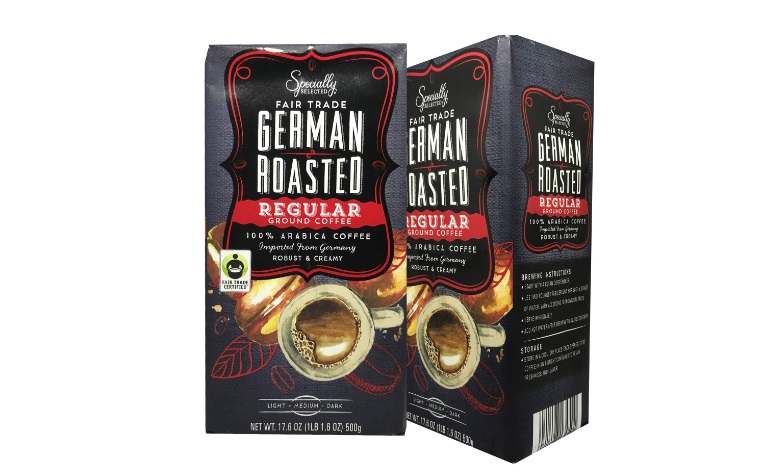
When you think of German roast coffee, envision a brewing culture that emphasizes subtlety and tradition rather than boldness. Unlike its European neighbors who might favor darker, more intense roasts, German coffee typically offers a gentler touch. This approach focuses on enhancing the natural flavors of the coffee beans, which are often sourced globally and roasted locally to create a cup that’s rich in heritage but mild in profile.
Germany’s role in the coffee world is substantial yet understated. Not known for growing coffee, Germany excels in the art of roasting and distributing these beans. It stands as a central hub in the European coffee trade, re-exporting a significant amount of the coffee it imports. This pivotal role showcases Germany’s expertise in handling and refining coffee, making it a key player in the international coffee scene.
Key Takeaways on German Roast Coffee
- Milder Roast Profiles: Compared to other European coffees, German roast coffee is typically milder, allowing the intrinsic flavors of the coffee beans to be more pronounced.
- Focus on Quality: German coffee brands prioritize high-quality Arabica beans to ensure a superior taste experience, highlighting smooth, refined flavors.
- Prominent Brands: Well-known German coffee brands like Dallmayr, Tchibo, and Jacobs are celebrated for their consistent quality and unique coffee blends, each offering a variety of products from ground to whole beans and instant options.
- Cultural Significance: The approach to coffee in Germany reflects a broader cultural appreciation for meticulous craft and tradition, influencing how coffee is both made and enjoyed.
The Flavor Profile of German Roast Coffee
German roast coffee captivates with its nuanced flavor profile, marked by a delicate balance that caters to both refined palates and casual coffee drinkers. The typical flavors you might encounter range from mild and smooth to subtly rich, depending on the roast level. Lighter roasts often preserve more of the bean’s original character, bringing out bright, acidic notes that can hint at floral or fruity undertones. As the roast deepens, these flavors mellow out, giving way to a more balanced and slightly sweeter taste profile.
The origin of the beans plays a crucial role in defining the flavors of German coffee. For example, Arabica beans from South America might introduce a slightly nutty or chocolaty flavor, which complements the mild roasting techniques employed by German roasters. Brands like Dallmayr and Jacobs, which source premium beans from specific regions, often highlight these unique characteristics in their blends. Dallmayr’s Prodomo, for instance, is renowned for its smooth, rich flavor with just a hint of acidity, making it a favorite among German coffee aficionados.
How to Brew German Roast Coffee
Brewing the perfect cup of German coffee involves a few key techniques that can make all the difference. In Germany, popular brewing methods include using a French press or a pour-over, both of which are revered for their ability to draw out the coffee’s full spectrum of flavors without overpowering its inherent qualities.
When brewing German roast coffee, consider the grind size, which should match your brewing method of choice. A coarser grind works best for French press coffee, while a medium-fine grind is ideal for pour-over setups. Water temperature is another critical factor; aim for about 195 to 205 degrees Fahrenheit to ensure optimal extraction without scalding the beans.
Popular German Coffee Brands and Their Offerings
In the world of German coffee, brands like Dallmayr, Tchibo, and Jacobs stand out not just for their history, but for their commitment to quality and variety. Each of these brands has carved out a unique niche in the coffee market, offering everything from ground coffee to whole beans and instant options, catering to a wide range of coffee lovers’ preferences.
Dallmayr
Dallmayr is synonymous with luxury and tradition in German coffee culture. It’s particularly famous for its “Prodomo” blend, a premium quality coffee known for its distinctive aroma and lack of bitterness. Dallmayr sources its Arabica beans from the high altitudes of Ethiopia, ensuring a unique flavor profile that’s both refined and intense.
Beyond ground coffee, Dallmayr also offers whole beans for those who prefer to grind their coffee fresh, as well as a selection of coffee capsules compatible with popular brewing machines.
Tchibo
Tchibo has a dynamic approach to coffee, providing a vast array of options that appeal to a broad audience. Known for its freshness, Tchibo operates its own cafes where it sells coffee that is often roasted just a week prior. Its offerings include a variety of roast levels from light to dark, and it’s particularly praised for its balanced blends.
For convenience seekers, Tchibo offers ground coffee and instant coffee solutions, ensuring that there’s a Tchibo coffee for every taste and brewing method.
Jacobs
Jacobs is another powerhouse in the German coffee market, renowned for its rich history and the classic “Kronung” blend, known for its smooth, mellow flavor and aromatic intensity. Jacobs focuses on both ground and instant coffee options, making it a popular choice for quick and easy brewing without sacrificing taste. The brand’s commitment to quality is evident in its careful selection of beans and its roasting process, which aims to bring out the best in each bean.
FAQs
When diving into the world of German roast coffee, several questions frequently arise, reflecting the curiosity and interest of coffee enthusiasts worldwide.
What are the best German coffee brands?
Among the most celebrated are Dallmayr, Tchibo, and Jacobs, each known for their unique roasting styles and high-quality beans. These brands offer a variety of products from whole beans to ground and instant coffee, catering to all preferences.
What is the typical caffeine content in German coffee?
The caffeine content in German roast coffee can vary depending on the blend and roast level. Generally, it is comparable to other European coffees, but the specific caffeine level can be influenced by whether the blend uses more Arabica or Robusta beans, with Robusta containing more caffeine.
How does German roast coffee compare to other European coffees?
German coffee is often milder than its European counterparts, particularly those from Italy or France where a darker roast prevails. This milder roast allows for a more nuanced flavor profile, making German coffee distinct in its subtlety and complexity.
Final Thoughts
Reflecting on German roast coffee, its uniqueness lies not just in the flavor, but also in the cultural significance it holds within Germany. Unlike regions famed for their robust, dark roasts, Germany has carved out a niche with its milder, meticulously crafted roasts that highlight the natural flavors of the beans.
The cultural appreciation for coffee in Germany goes beyond just consumption; it extends into the care and precision in coffee preparation and serving, mirroring the country’s broader values of quality and tradition. This subtle and deliberate approach to coffee roasting ensures that each cup offers not just a beverage, but an experience that is deeply rooted in German heritage.









